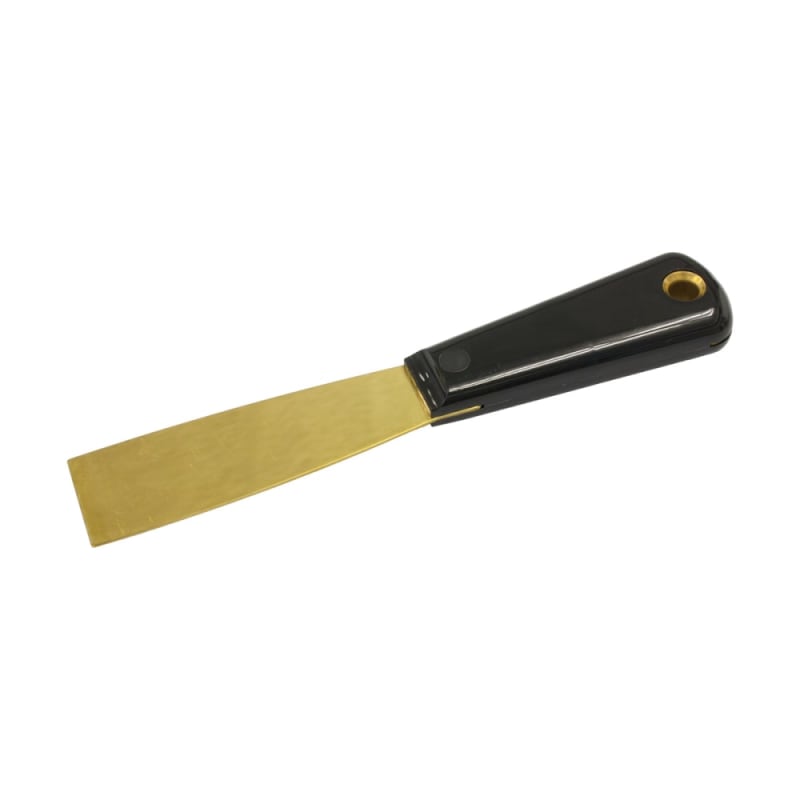I think you're dealing with fundamentally opposing requirements by expecting it won't bend but it will be soft enough to not scratch the part.
You can definitely experiment with work hardening the brass. But again, harder increases the risk of scraping your workpiece.
You can experiment with different grades of brass or bronze but either way I think you can't have a long unsupported plate of the scraper material. You'll need to sandwich the actual scraper between two plates of high hardness material (steel?).
BeCu is interesting because of it's low spark energy properties and high hardness. Agree that toxicity is a major problem to consider there. Also, do you need it to be non-sparking?


